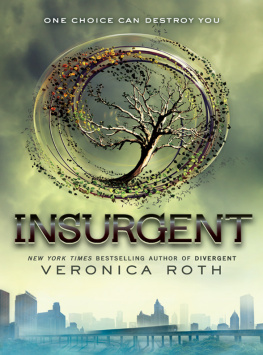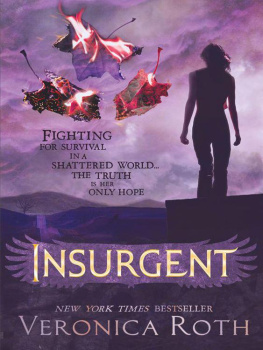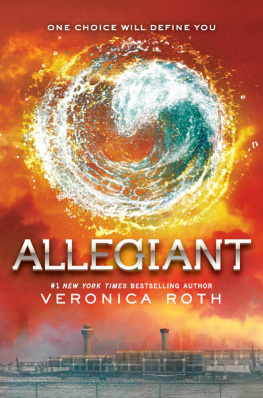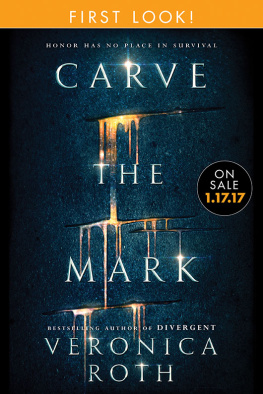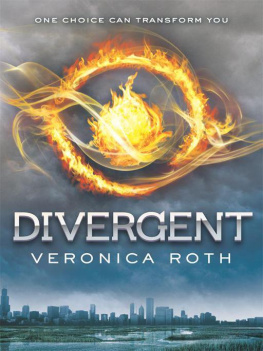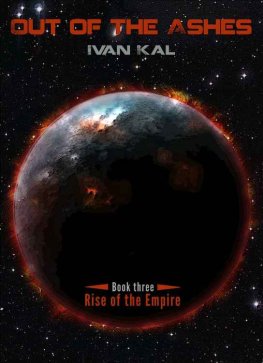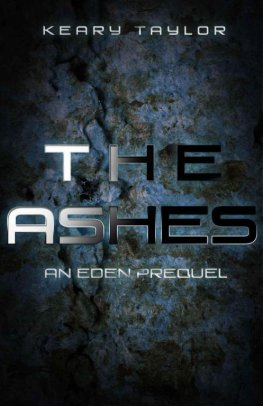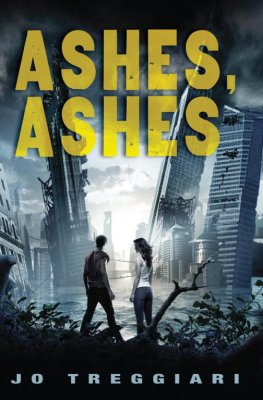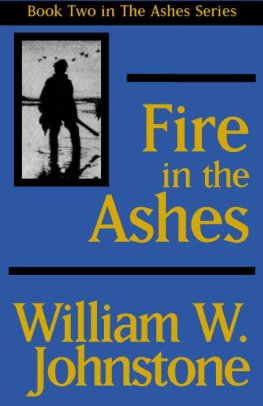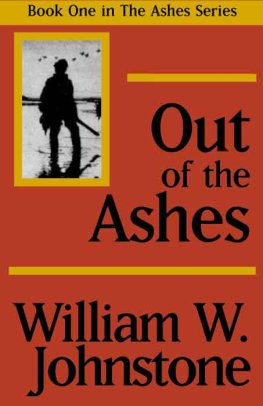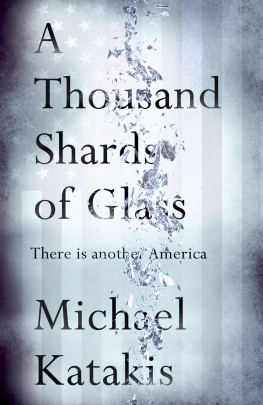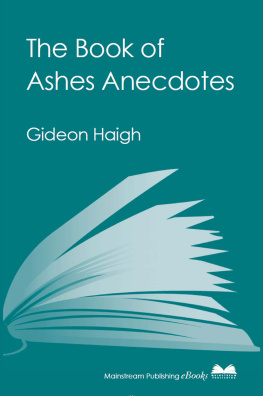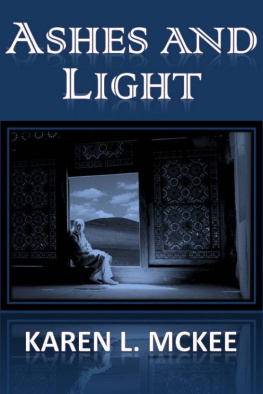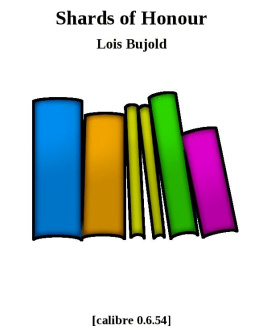Shards and Ashes
An anthology of stories edited by Kelley Armstrong and Melissa Marr
Introduction
by Melissa Marr and Kelley Armstrong
In recent years, there have been a plethora of disasters and political upheavals. The news makes a person pause and ponder. Yet . . . we couldve said the same thing in past yearsand undoubtedly we will be able to say it in the future. Somehow, to us, the news has seemed more poignant of late. We see threats looming, ways things could go horribly awry, and wonder at the uncertainty of the world. Maybe its as simple as being mothers to teenagers who are leaving the nest. In discussing this one sunny afternoon, we thought it would be interesting to ask various writers/friends to envision a dangerous future. Oddly (or not), they thought this sounded like a grand idea.
A couple of the contributors already write of dark futures in their novels. One of them, Beth Revis, returned to us with a story set in space, in the world of her Across the Universe series, while Veronica Roth created a new future where one can hear songs of life and songs of death. Carrie Ryan decided to unsettle us with a world facing a plague that gave at least one of the editors a case of the shivers. Other authors who are not writing near-future novels created worlds very different from their novels. Rachel Caine delivered a chilling story of advanced technology and age-old class divisions; likewise, Kami Garcia tackled questions of class in a society where the sun is deadly. And then Margaret Stohl and Nancy Holder came in and offered up stories of hope, glimmers of light among these shards and ashes.
In this anthology, you will meet a mythological corpse eater and the Erl King, as well as reluctant heroes and those who are neither hero nor villain. Youll walk in the swamp, desert, forest, and city. Youll visit a ship hurtling through space, and a cavernous underground world. Without any planning beyond selecting the authors themselves, weve collected vastly different visions of dark futures. The one constant, in our editorial opinion, is that these are stories we feel fortunate to have read and to share with you.
Melissa & Kelley
BLACK OR RED?
The woman in the lab coat held up two small containers: one with a red substance caked inside it and one with black. It sounded like she was asking Darya a question of taste, rather than the question that defined her future. The only question, Darya believed, that would ever matter this much.
The question was not Black or red? It was Life or death? And Darya would not have been able to answer before that moment.
She had been seven years old when her father first realized what she could become. Her older sister, Khali, had been playing piano in the living room, an old piece by Schubert. Darya sat on the couch, humming along, a book in her lap.
Her mother dozed in the recliner, her mouth lolling open. Darya thought about drawing a mustache on her face. She wouldnt notice it when she awoke. She would be too dazed by the alcohol. Even at seven, Darya knew. But it was not uncommon, with the world as it was. Half her friends parents had the same problem.
Daryas father stood in the doorway, listening, a dish towel in his hands. He turned it over a plate to the rhythm of the notes, which came in stilted intervals as Khali tried to read the music. Darya stopped humming, irritated. The music was meant to be smooth, and it sounded like Khali was chopping it up into bits.
Khali turned the page and adjusted her hands on the piano. Darya perked up, letting the book drop into her lap. Her mother snored. Her sister began playing, and Darya stood, walked over to the piano, and stared at her sisters hands. To her the notes sounded wrong . . . the intervals were too large, or too small; they did not mesh together in the right way.
Thats wrong, she said, wincing.
No its not, said Khali. How would you know?
Because I can hear it, she said. Its supposed to be like this.
She reached out and shifted her sisters index finger one note over. Then she moved Khalis pinkie finger, and her middle finger.
There, said Darya. Now do it.
Khali rolled her eyes and began the piece. Darya smiled as the notes came together, ringing when they touched each other.
Oh, said Khali. Her skin was too dark to reveal a blush, but her sheepish expression betrayed her. Youre right. I read it wrong. Its supposed to be in B minor.
Darya smiled a little, walked back to the couch, and picked up her book again. Her father moved the towel in circles even when it started to squeak against the dry dish.
A few weeks later, Daryas father started her in music classes. There they discovered that Darya had perfect pitchone of the prerequisites for becoming a Hearkener.
Khali quit piano after Darya surpassed her in skill, which took only a year. It was useless to try to play piano when you were in the same family as a Hearkener.
Come on. Todays the day!
Darya yawned over her cereal. It was too early to be hungry, but her father had warned her that she would need to eat a good breakfast because today would be a long one. She was going to be tested by the Minnesota School for Hearkeners later that morning to see if she was qualified to enroll, and the test could last several hours. That was a long time for an eight-year-old.
Her mother shuffled into the kitchen in her old robe, which was threadbare at the cuffs where she pulled it over her hands. She held a mug of coffee, which Darya eyed suspiciously. Her mother had carried it into the bedroom several minutes ago.
A few weeks before, Darya had found a brown bottle under the sink in her parents bathroom. She had sniffed it, and its contents burned her nose, and the smell seemed to linger there for several minutes. The bottle and the coffee and her mothers running-together words were part of a familiar pattern that she had always recognized, even before she had the words to describe it.
Her mothers eyes wandered across Daryas face.
Wherere you going? she asked.
Im taking Darya to get tested, Daryas father said, too brightly.
Tested for what?
Dar has perfect pitch. Her father set his hand on Daryas head and tousled her hair. She could be a Hearkener someday.
A Hearkener, to Daryas mother, meant two things: being employed by the governmenta stable job; and carrying an expensive piece of equipment, the implant, in your headwhich meant immediate evacuation if the country was quarantined. She snorted a little.
Dyou really think you should be putting that idea into her head? Her mothers eyes were cold and critical. Darya couldnt look at them. Almost nobody becomes an Ark . . . Arkener.
Darya stared at her bowl. The little bubble of excitement that had risen inside her as soon as she woke up was gone, like it had floated away.
Her father rose and took her mothers arm. Maybe you should get back to bed, Reggie. You dont look well.
I just meant, her mother said angrily, that I dont want her to be disappointed
I know, he said.
He ushered her from the room. Darya heard the bedroom door close and muffled voices getting louder every second until something banged shut. No longer hungry, she dumped her cereal bowl into the sink without finishing.
Your moms not feeling so good, Dar, her father said as they walked down the sidewalk in front of the apartment building. She didnt mean it.
Darya nodded without thinking.
They would have lived in the suburbs if they could haveit was safer there, since the attacks came less frequentlybut her fathers job only paid well enough for a small apartment downtown.
The attacks had always been a part of Daryas life. They could come from anyone, and they were waged against everyone with a pulse. That was why Darya and her sister had to wear face masks on the way to school.


